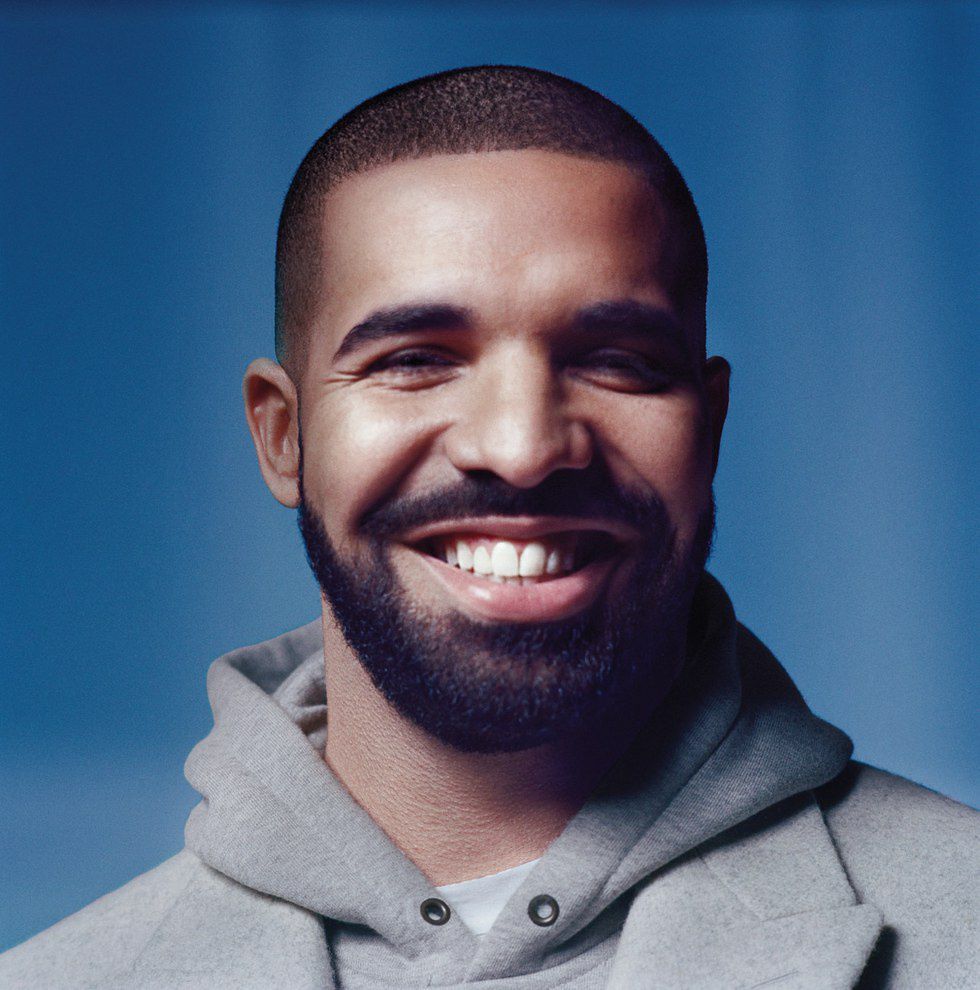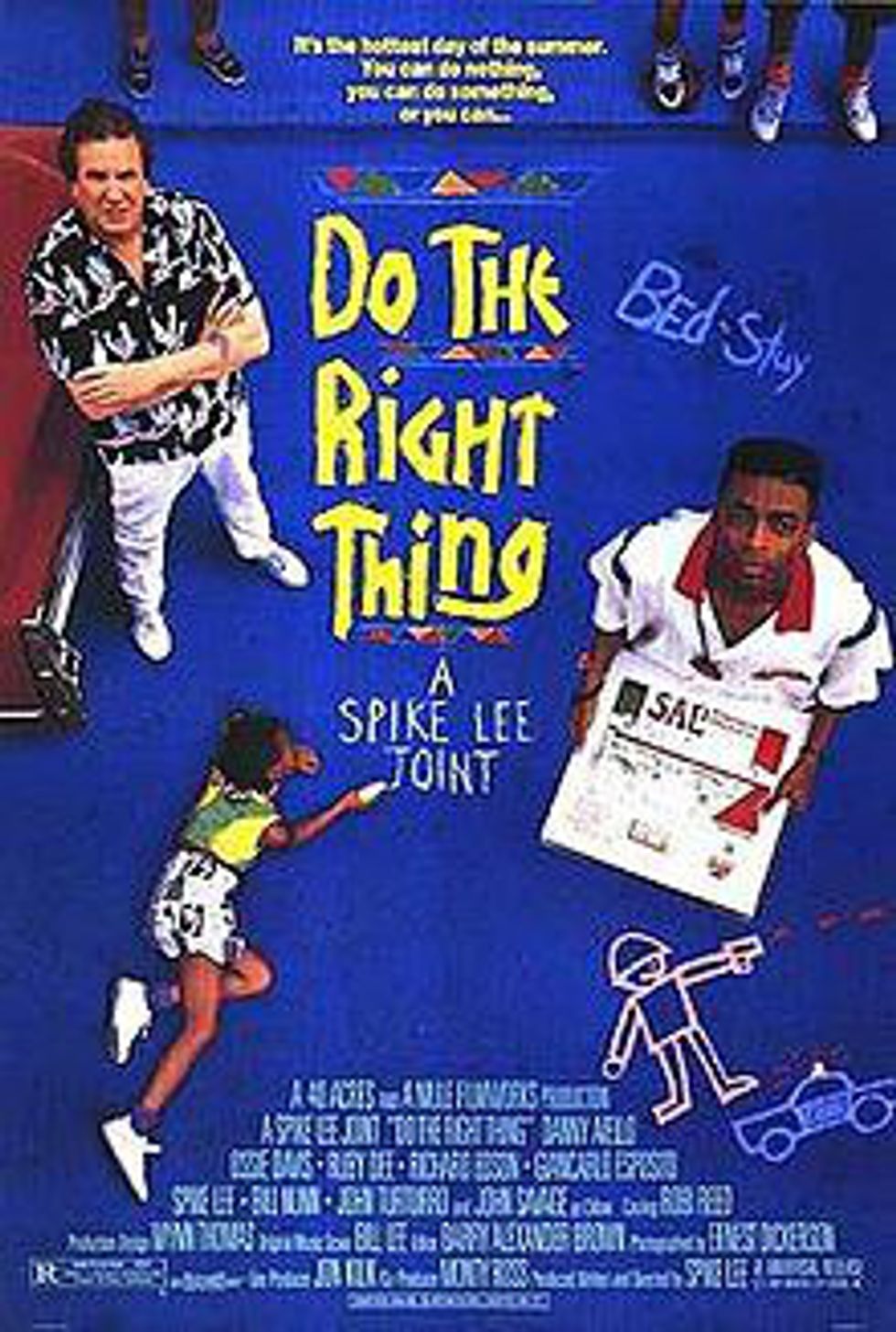The year is 1989 and Spike Lee is getting ready to release one of his biggest films yet, Do the Right Thing. The movie details the hottest day of the year on a street in the Bedford-Stuyvesant section of Brooklyn, which forces everyone's hate and bigotry to explode into violence. The movie captures no only the racial tensions within that environment, but also the Brooklyn culture.
Being one of the birth places of hip-hop, Spike would have been remised if he did not include hip-music and culture into the film. So as he was working on the soundtrack of the film, Spike decided to reach out to one of New York’s best hip-hop groups to get a song for the film, Public Enemy.
Public Enemy
Public Enemy had been known for their brashness, aggression, Afrocentricity, and political activism. All these things came together in perfect fashion for “Fight the Power” the song they allowed Spike Lee to put in the film, and would be featured on their album Fear of a Black Planet.
The song would make Public Enemy the biggest name in hip-hop as the song would find its way to the top of the charts. The song was everything hip-hop was built on and what hip-hop fans wanted, aggression, thought provoking lyrics, jazz and soul samples, and was something you could dance too. Coming a year after N.W.A. made “gangster” rap popular in the mainstream, Public Enemy was the perfect combination of aggression and pop flare for mainstream success. Fight the Power has been crowned by many sources as one of, if not, the greatest hip-hop songs of all time, and PE has found their way into the hip-hop hall of fame. If one was to ask what hip-hop is, at some point you are directing them towards Public Enemy.
Fast forward to 2016 and one of, if not, the most popular rapper in the world is a light skin Canadian. Aubrey Drake Graham, or known better as Drake, has arguably had more impact on hip-hop in the last five years than Drizzy Drake.

Born in Ontario, Canada in 1986 to Sandi Graham and Dennis Graham. Drake's father is an African-American from Memphis, Tennessee, and Drake's mother is a Caucasian Jewish Canadian, thus giving Drake his fairly light complexion. Drake was raised Jewish and would attend the local Jewish and have a Bar Mitzvah as child. At the young age of 15, Drake would meet an acting agent who would help get him a spot in the Canadian teen show Degrassi where he would act for four years. Upon leaving the show, Drake would begin working on his music career.
Drake would have a series of mixtapes before releasing his critically acclaimed mixtape, So Far Gone. The mixtape and its lead single, Best I Ever Had, would cast Mr. Graham into stardom.
He quickly became one of the biggest names in hip-hop without being signed to major label or having a commercial album. He was achieving success in a genre that built itself on authenticity and reputation. He did so by rapping and singing about love, his feelings, and a how he was a dope rapper. The interesting thing is, he would prove this to us.
Drake would sign with the Lil Wayne co-owned label, Young Money, and drop three albums that would change the landscape of hip-hop as we knew it. Between Thank Me Later and Take Care Drake would inevitably create his own style of hip-hop that the entire genre would take notes from. In a genre that prides itself on overt masculinity, aggression, and street cred, Drake was everything but those things. Drake writes about wanting to text his ex-late at night, mixes Caribbean and Latin music, and is less about being the hardest rapper around, but instead making hits. Drake is one of the easiest hip-hop artist to hate on, but the hardest to dispute how talented he is.
“Anti-Hero: a central character in a story, movie, or drama who lacks conventional heroic attributes.
As a fan of comics, the anti-hero is a character that the reader struggles to comprehend. While they may do good and positive things, their unconventional way of going about them and accomplishing some sort of success is frustrating. As Punisher is Dare Devils anti-hero, Drake is the anti-hero to hip-hop. He is the biggest name in hip-hop right now, yet he does none of the things hip-hop was founded upon. He lacks aggression and does offer much for the socially conscious. Yet we love every minute of it, his latest release, Views, sold 600,000 copies on iTunes in the first 24 hours. As much as I love hip-hop in its truest form, Views is another addition to a list of good Drake albums. He is the face of Apple Music, has made the city of Toronto cool outside of hockey, and has a collection of memes, vines, and GIFS that has given him immortality on social media.
And as much as I want to hate and bash the music, it's just too smooth. Drake isn't the king, but he is here to stay.


















